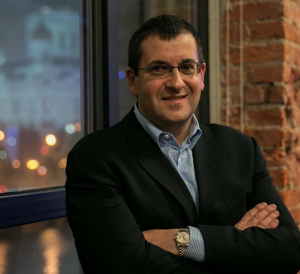“He’s got pretty persuasion. She’s got pretty persuasion. Goddamn, your confusion.” Pretty Persuasion – REM
 Interviews can be deceiving and confusing. When you meet a candidate in person, you can get a lot of false positives. The candidate is on her best behavior, well prepped and aiming to sell you on herself as a great hire. Often, you will find yourself enjoying your conversation enough that you get persuaded to hire someone who really isn’t the right fit for the role. That is why I believe interviews are for weeding people out but real references are the best barometer for making a job offer. I have learned this through years of experience and mistakes. My friend Thomas Layton, the former CEO of OpenTable and current Chairman of Odesk, helped me confirm this approach when I started at SurveyMonkey in 2009.
Interviews can be deceiving and confusing. When you meet a candidate in person, you can get a lot of false positives. The candidate is on her best behavior, well prepped and aiming to sell you on herself as a great hire. Often, you will find yourself enjoying your conversation enough that you get persuaded to hire someone who really isn’t the right fit for the role. That is why I believe interviews are for weeding people out but real references are the best barometer for making a job offer. I have learned this through years of experience and mistakes. My friend Thomas Layton, the former CEO of OpenTable and current Chairman of Odesk, helped me confirm this approach when I started at SurveyMonkey in 2009.
 In my early days at SurveyMonkey, 100 percent of my time was spent on HR-related issues, specifically recruiting. At the time, SurveyMonkey was 14 people in Portland– my first priority was to scale the team. From a small office in Menlo Park, California, I had to find and hire talent. I had to interview everyone personally and make most of the decisions myself.
In my early days at SurveyMonkey, 100 percent of my time was spent on HR-related issues, specifically recruiting. At the time, SurveyMonkey was 14 people in Portland– my first priority was to scale the team. From a small office in Menlo Park, California, I had to find and hire talent. I had to interview everyone personally and make most of the decisions myself.
This meant tracking down and calling real references – a job most delegate to HR. I don’t think you learn much from references listed by the applicant. Those people are clearly going to say good things. You need to get real information from someone who you trust. Most of the people we hired in the beginning were two degrees away- that is, they were referred or connected to someone I knew. This allowed for honest feedback on the candidate’s strengths and weaknesses. If we didn’t have that direct reference to talk to, I used LinkedIn to find people who had worked with the person. Each role was different but some things were universal. I needed people who could flourish in a startup like culture but could also understand how to scale. Would he be willing to do his own work or did he just view his role as a manager, telling others what to do? How did she solve scale problems when they occurred? You can ask candidates those questions but it is much more valuable to understand how the person actually behaved in real situations.
Cultural fit is also important and impossible to figure out in an hour interview. How does the person work with peers, manage people and deal with stress? You can ask your real reference those questions; get past the “pretty persuasion” of the interview. I learned the hard way that someone who looks great on paper may not fit with our culture. Their experience simply didn’t carry over to their job with us. It turns out that people with seemingly relevant experience just are not interchangeable. A person who was an all-star at one company might not be able to repeat that performance in your organization, because his success may have derived from relationships with the previous employer, or her team may have propelled her achievement.
On the other hand, many people may not have the experience you feel is required for a job, but are just really smart, talented and motivated. When you take a chance on these employees and get it right, they become home grown talent – essentially your farm team. These are likely to be the carriers of your culture, and some of the best, most loyal employees because you took a chance and developed them from within. I have found it has worked to have a mix of experience and raw talent- the two types learn from each other.
At SurveyMonkey, we’ve moved talented people within the organization to give them room to stretch and grow — finance folks to business development roles, customer ops to engineering. It is much easier to take a chance on someone who already has proven themselves for you in another role than bring an experienced outsider in- the internal hire has all the boxes checked except experience.
As the company has grown, my time spent on HR-related matters has shrunk. Still, nearly one-third of my responsibilities relate to talent and culture. We are a company that defines success by getting and keeping the right people. I still do my own calls for all key hires and look for good spots to build that farm team of great talent. Let resumes and interviews be used to reject candidates but rely on real references to hire people.









Leave a Reply